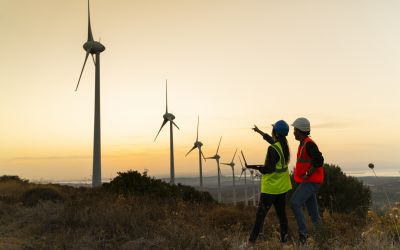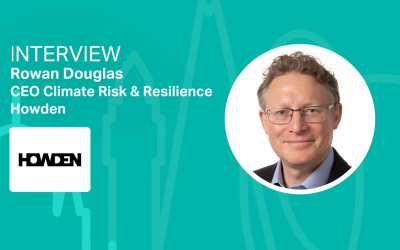Andrew Lever on the Carbon Trust’s new project exploring the value of flexible energy systems
Climate Action caught up with Andrew Lever, Director of Programmes and Innovation at the Carbon Trust, to discuss a new project exploring the value of flexible energy systems in Great Britain.

Climate Action caught up with Andrew Lever, Director of Programmes and Innovation at the Carbon Trust, to discuss a new project exploring the value of flexible energy systems in Great Britain.
What are your thoughts on the UKs recently released 10-point plan?
There’s no doubt that the UK government has made climate a cornerstone of the post-Covid recovery plan, and the UK is in a very different place than it was even 18 months ago in terms of climate ambition. From where we are standing our hope is that this plan is framed within a wider discussion of how each of the points will impact the energy system as a whole. We should be taking advantage of the value created through collaboration across sectors and reap the economic and environmental benefits. The much-anticipated energy white paper that was released late last year provides the detail behind the 10-point plan, in turn providing greater certainty for the private sector. We’re looking forward to seeing more detail in the forthcoming heat and building strategy and the hydrogen strategy which will serve to create the certainty needed to increase the levels of confidence that will unlock the sale of necessary investment.
What new sources of flexibility will be vital for the decarbonisation of the heat and transport sectors? And how can the cost be addressed to be affordable?
Lots of technologies exist to facilitate flexibility – batteries, smart meters, thermal storage etc. These won’t be applied in one sector alone; electricity generated by an offshore wind farm will be converted into hydrogen and then used for heat. Likewise, as we electrify our transport system, we have to compensate for this increased demand by upping our generation capacity. This is where flexibility in the system becomes critical. It’s not all about technology as well. Demand-side flexibility is about engaging people to make smart choices about when and how they use energy to save on their own energy bills and wider system costs. For those technologies that are more nascent, like the creation of hydrogen through electrolysis, collaboration is key. We have seen first-hand the successes that can be achieved through collaborative industry programmes where knowledge is shared to accelerate innovation and cost reduction.
Can you say a bit about the Carbon Trust’s joint industry project looking at the value of flexible energy systems in Great Britain? What does the project focus on and what are you hoping to achieve?
Through the Flexibility in Great Britain project we are conducting in-depth analysis based on research, modelling and stakeholder interviews to investigate how different sources of flexibility across the heat, transport and power sectors can reduce overall system costs to consumers. This work will also consider the business models required to deliver an integrated flexible system. It builds on influential work we did on flexibility in 2016, which identified that the cost of a future low carbon energy system in Great Britain could be reduced by £40 billion with greater flexibility and the implementation of storage. The findings of the Flexibility in Great Britain project will be published in Spring this year and are expected to inform energy system stakeholders, investors and policy makers’ work on net zero commitments, heat decarbonisation pathways and the rapid transition to low emission transport options.
What is the number one step that needs to be taken to ensure greater collaboration across sectors, which will be required to realise new revenue streams, business models and secure investment cases?
We need to adopt a ‘systems thinking’ approach, to realise that future energy solutions will only happen when multiple actors come together, be it to share infrastructure costs, optimise local energy flows and collaborate on new revenue opportunities. The scale of action and investment is massive and collaboration to reduce that cost will require a broader, holistic, approach.
What is the one most important thing you think needs to be achieved within the next 12-months to ensure that 2030 climate targets are met?
That green investment decisions are prioritised in any governments’ post-Covid economic stimulus plan. Alignment on climate action should be the key criteria for any business and government investment decision over the next decade.






